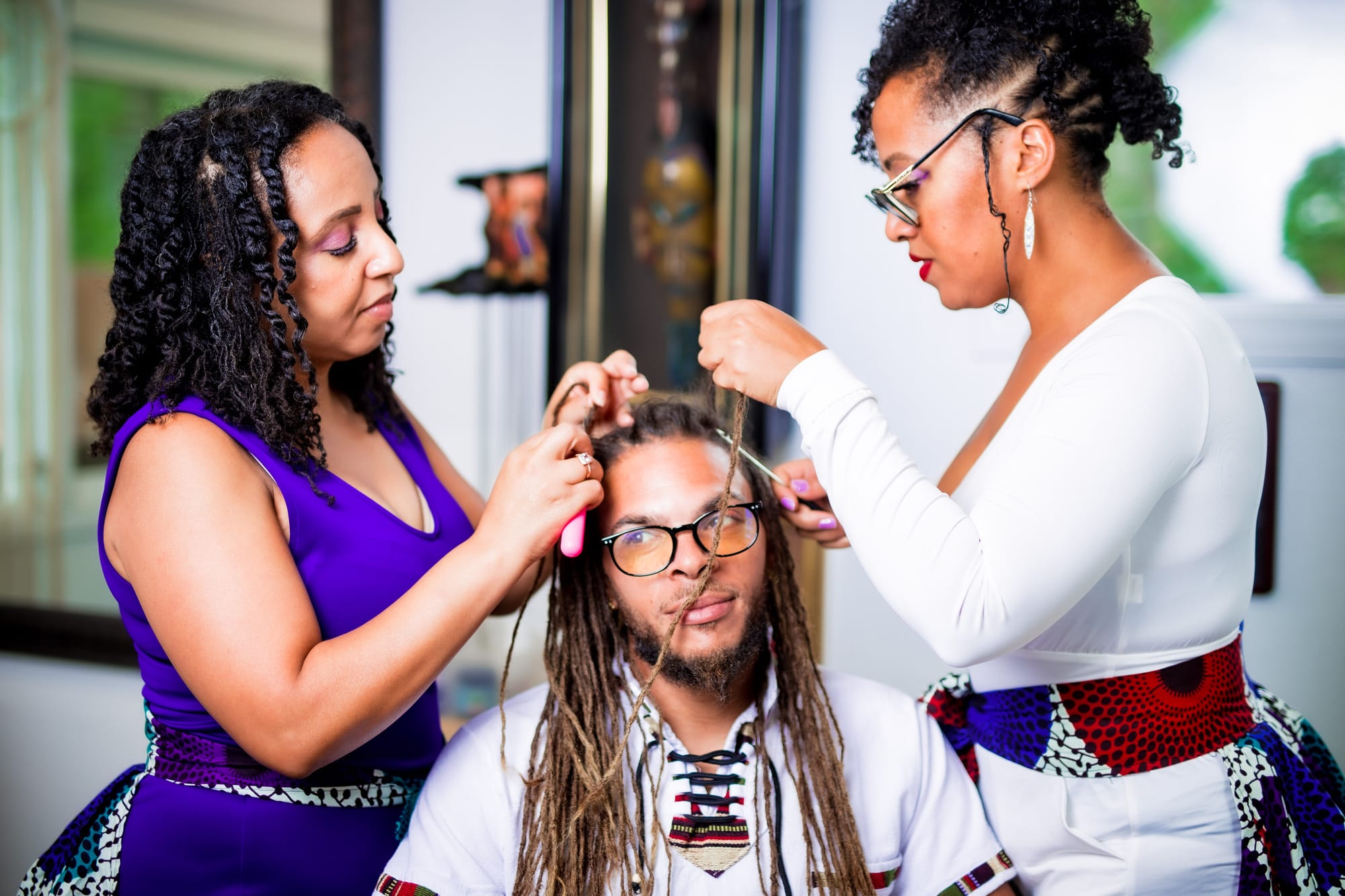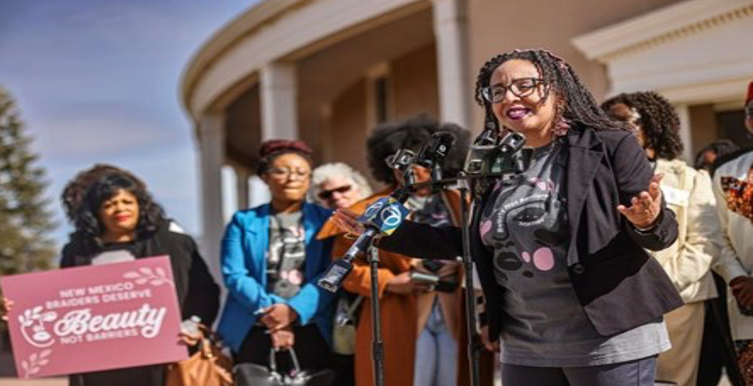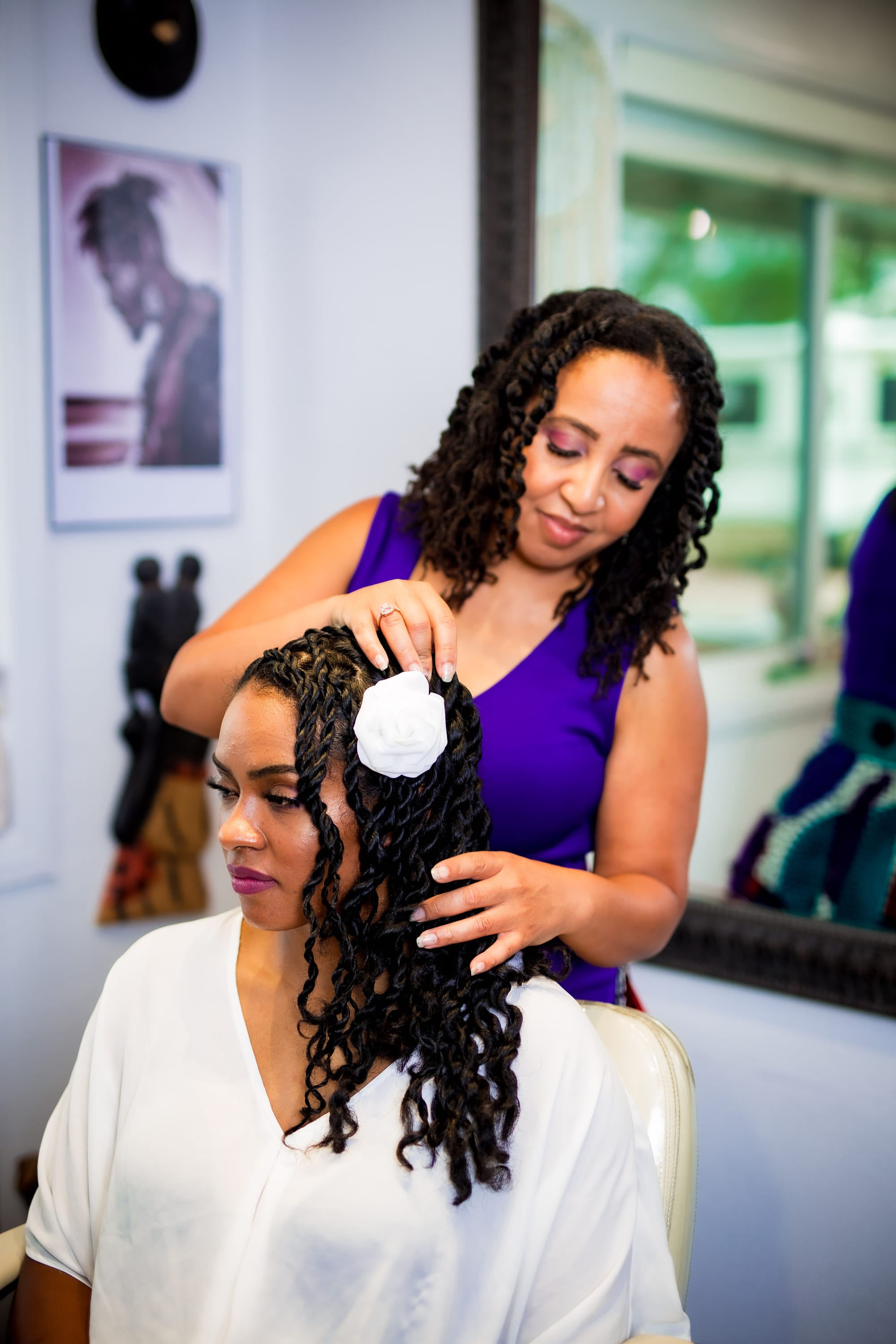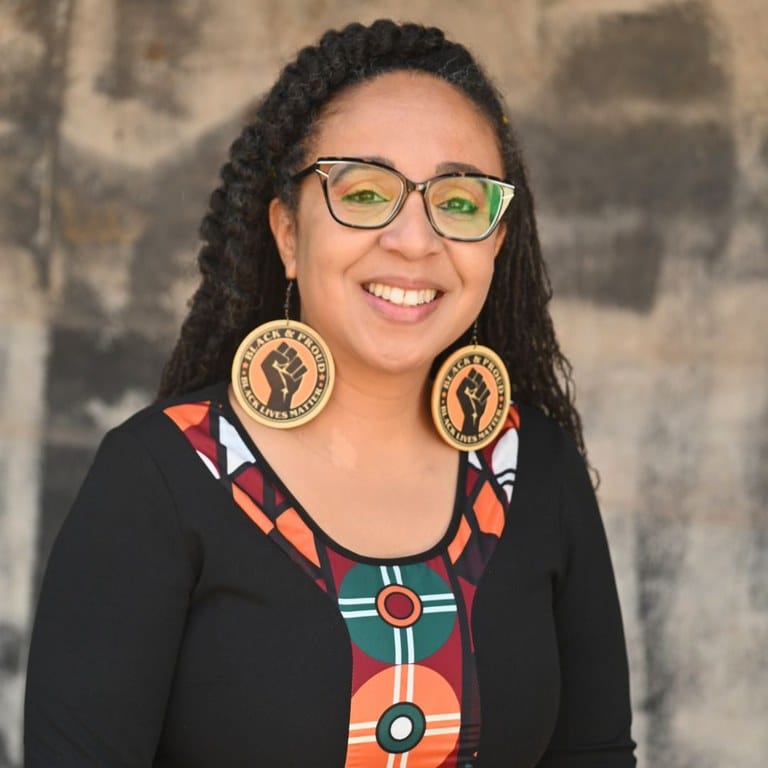Licensed to Twist: The Fight for Braiding Freedom in New Mexico
A community-powered policy win is unlocking economic freedom in New Mexico—empowering Black braiders to create economic power with cultural practices passed down through generations. Learn more in Shannon Yvonne Moreau's coverage of House Bill 281.

by Shannon Yvonne Moreau
What’s one thing most Black people can get behind?
Hair.
That was a lightbulb moment for Neema Pickett as she and her team crafted policy to benefit the Black community. As liaison for the City of Albuquerque’s Office of Black Community Engagement, she’d get calls from people before they relocated here, asking the same question: “Where can I go to have my hair done?”
Protective Styles, Protected Rights: Legalizing Hair Braiding in NM
Braids and locs are a natural, protective hairstyle for Black people. To get it done right, you go to someone who’s got the skills. But until recently, skill wasn’t enough to have a legitimate hair braiding business in New Mexico. You needed a cosmetology license, costing thousands of dollars and requiring 1,600 hours of training. The kicker: hair braiding’s usually not even on the curriculum. “Schools were not and are not teaching these skill sets,” says Pickett. “People are learning them outside of the school institution.”
The goal was set: change the state’s licensure law.

A Bill That Took a Village
House Bill 281 exempts hair braiding from licensing per the Barber and Cosmetologists Act. It becomes effective July 1, 2025, making New Mexico the 37th state to pass such legislation.
Pickett’s team put in a year of work to make this happen, including contacting the Institute for Justice (IJ) and hosting film screenings about IJ’s case win for hair braiding. Representative Janelle Anyanonu attended one of those screenings, and decided to sponsor legislation.
It was a long haul. During the session, Pickett says, they had five people ready to speak at a moment’s notice. “And then guess what? You're all dressed up … sitting here ready to testify, and they pushed us to tomorrow or next week.”

Cultural Practice, Economic Power
The hair care industry in the United States is estimated at over 13 billion dollars annually. Pickett, who spent a grueling year getting her cosmetology license two decades ago, says “people should be able to make an income with something that they learned through generational inheritance–aunties, cousins, mamas, friends–something that's a traditional practice.”
The hair braiding exemption not only provides lucrative work opportunities, it also enables proof of income for business or home loan applications.

More Than a Win—A Movement
Pickett picked up braiding from her babysitter, then later learned about how enslaved Blacks disguised escape maps or seeds to plant in the patterns of their braided cornrows. “The legacy of what that has represented for our people to carry from one land to the next and into their first steps of freedom is such a beautiful inheritance.”
Out of over 1,000 bills introduced last session, only 160 were signed into law. The braiding bill’s triumph is because of “every individual who participated in the work,” says Pickett. “They either got on the bus, came on the Rail Runner, drove, carpooled and showed up.”
Pickett’s looking forward to the next official hair braiding studio to open. “I cannot wait.”
Start Your Own Braiding Business
Ujima Collective will be rolling out educational classes throughout the state to teach braiders what they need to know to open their companies. Anyone interested can contact Neema Pickett by email at npickett@cabq.gov.
